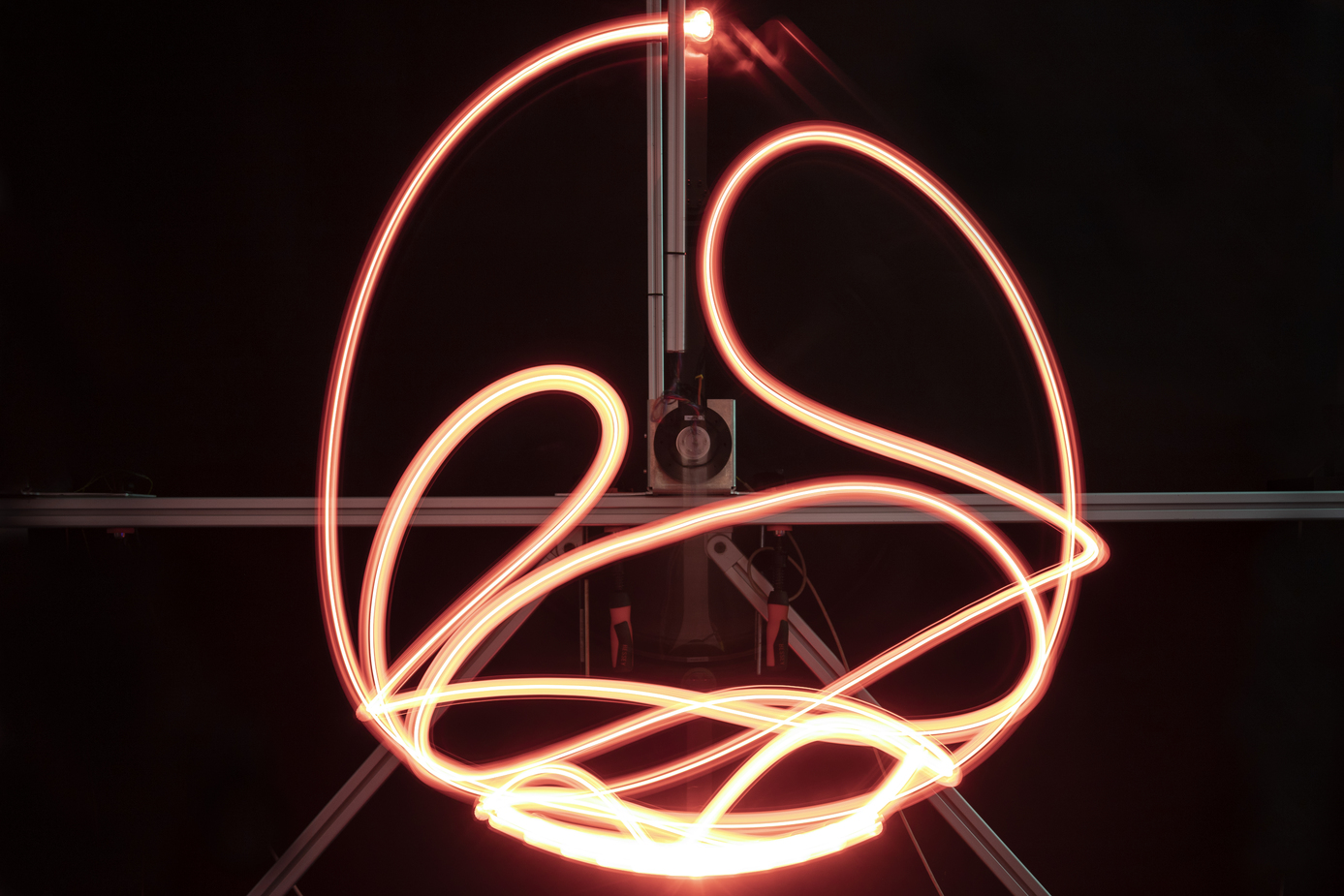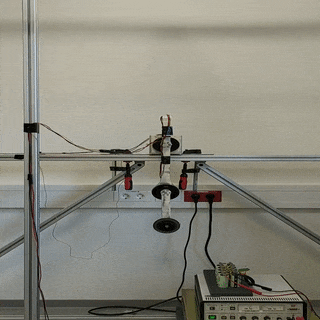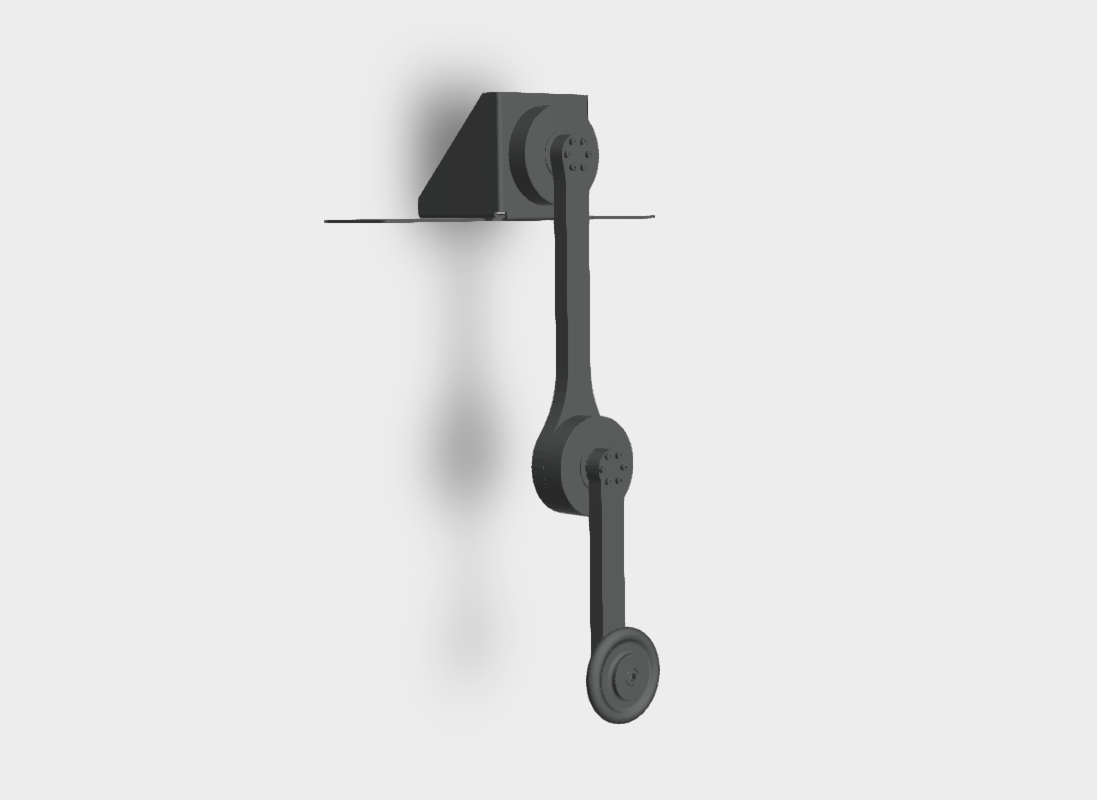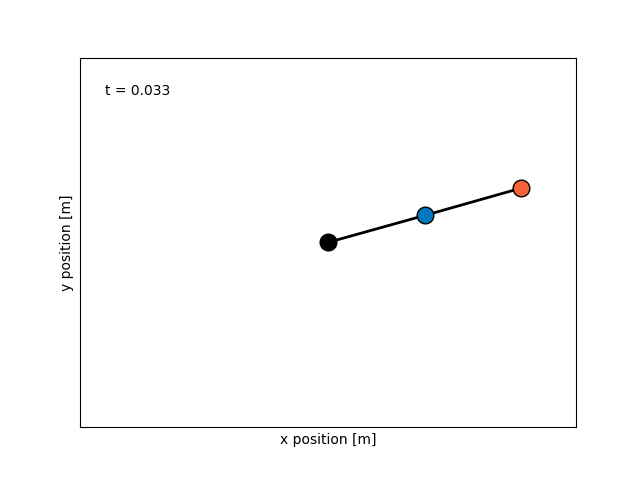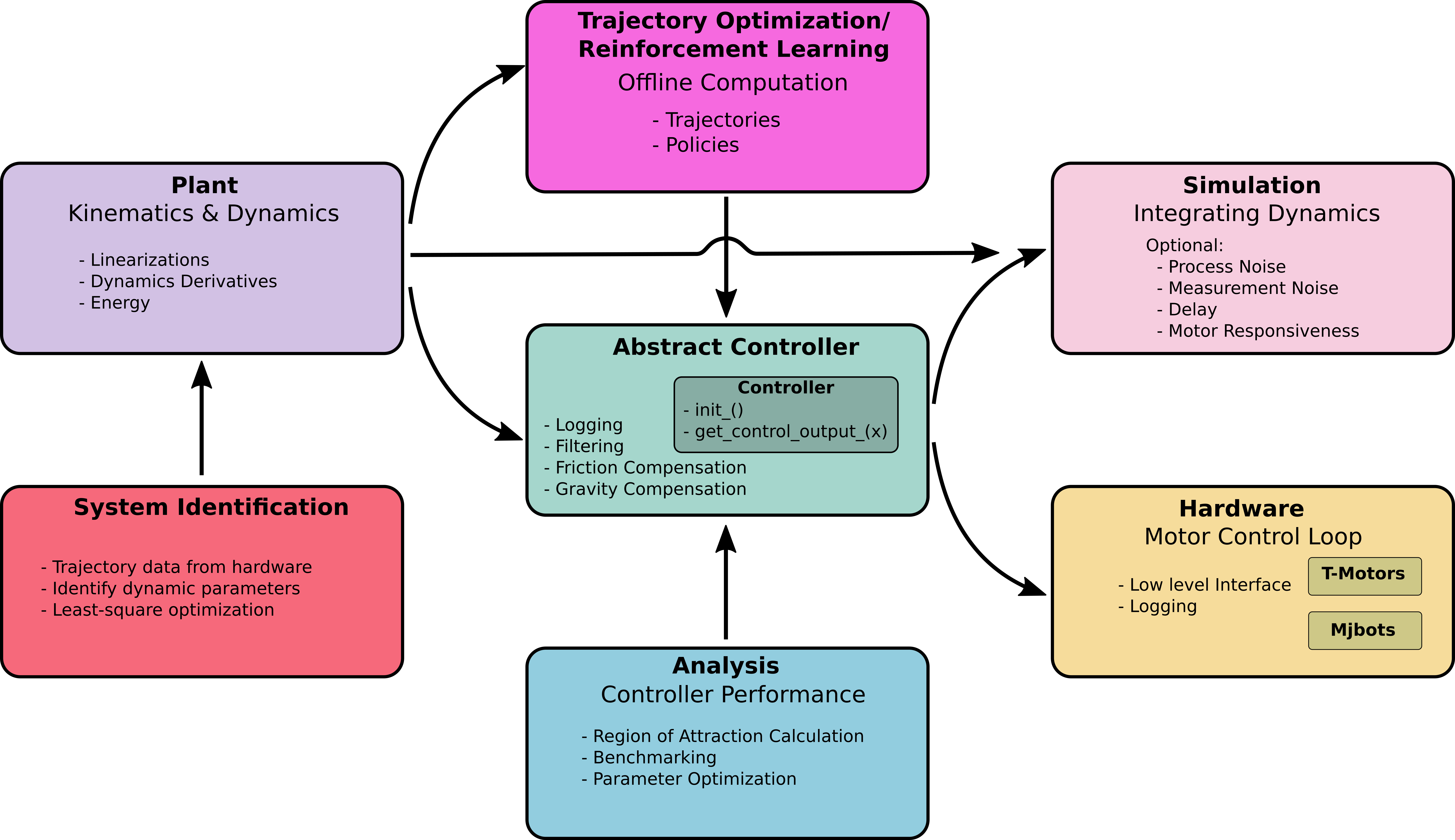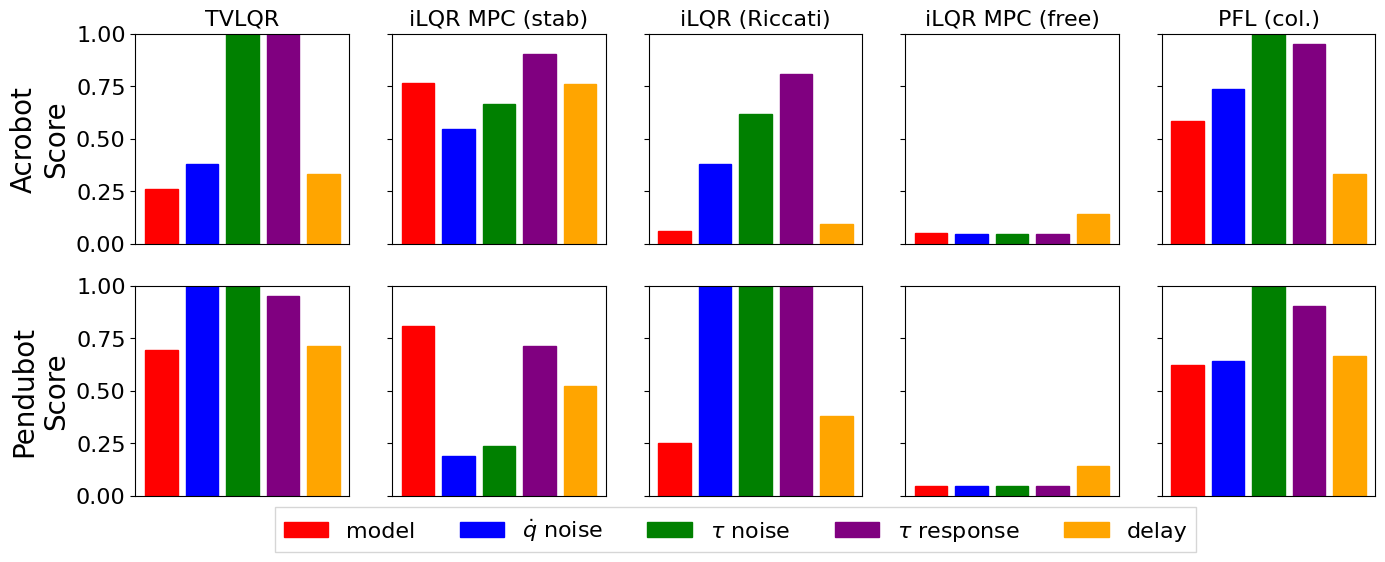This project offers an open-source and low-cost kit to test control algorithms for underactuated robots with strongly non-linear dynamics. It implements a double pendulum platform built using two quasi-direct drive actuators (QDDs). Due to low friction and high mechanical transparency offered by QDDs, one of the actuators can be kept passive and be used as an encoder. When the shoulder motor is passive and elbow motor is active, the system serves as an acrobot and when the shoulder is active and elbow is passive, the system serves as a pendubot setup. This project describes the offline and online control methods which can be studied using this dual purpose kit, lists its components, discusses best practices for implementation, presents results from experiments with the simulator and the real system. This repository describes the hardware (CAD, Bill Of Materials (BOM) etc.) required to build the physical system and provides the software (URDF models, simulation and controller) to control it.
Link to documentation.
The documentation can also be generated locally by doing
make doc
in the main directory. Afterwards you can open the file docs/build/_build/html/index.html in your browser.
For getting started check out the scripts in the examples/ideal folder which simulate and control the double pendulum, acrobot and pendubot under ideal conditions.
The repository is organized in modules. The interplay of the modules is visualized in the figure below:
A minimal example showcasing the interfaces between the plant, a controller and the simulator is:
from double_pendulum.model.symbolic_plant import SymbolicDoublePendulum
from double_pendulum.simulation.simulation import Simulator
from double_pendulum.controller.pid.point_pid_controller import PointPIDController
from double_pendulum.utils.plotting import plot_timeseries
plant = SymbolicDoublePendulum(mass=[0.6, 0.5],
length=[0.3, 0.2])
sim = Simulator(plant=plant)
controller = PointPIDController(torque_limit=[5.0, 5.0])
controller.set_parameters(Kp=10, Ki=1, Kd=1)
controller.init()
T, X, U = sim.simulate_and_animate(t0=0.0, x0=[2.8, 1.2, 0., 0.],
tf=5., dt=0.01, controller=controller)
plot_timeseries(T, X, U)
This code snippet uses a plant which is parsed to the simulator. The simulator is then used to simulate and animate the double pendulum motion by calling the
plant.rhs(t, x, tau)
with a time t = float, state x = [float, float, float, float] and torque tau = [float, float] and receiving the change in x in form of its derivative.
The simulation is performed for 5 seconds under the influence of a PID controller by at every time step calling the
controller.get_control_output(x, t)
method of the controller with a state x = [float, float, float, float] and a time t = float and receiving a torque tau.
More examples can be found in the examples folder.
For implementing your own controller, have a look at the controller class.
The following plot shows benchmark results obtained in simulation for the double pendulum design C.0 and model parameters h1.1. The results show the robustness of the controllers to
- Inaccuracies in the model parameters
- Noise in the velocity measurements
- Noise in the applied motor torques
- Imperfect step response from the motors
- A time delay in the state measurements
The controllers achieve a score between 0 and 1 in each category which is the fraction of successful swing-up motions under varying conditions.
- Shivesh Kumar (Project Supervisor)
- Felix Wiebe (Software Maintainer)
- Mahdi Javadi (Hardware Maintainer)
- Jonathan Babel
- Lasse Maywald
- Heiner Peters
- Shubham Vyas
- Melya Boukheddimi
Feel free to contact us if you have questions about the test bench. Enjoy!
Contributions to this project, especially in the form of new controllers, are very welcome! See Contributing for more details.
When working with a real system be careful and mind the following safety measures:
-
Brushless motors can be very powerful, moving with tremendous force and speed. Always limit the range of motion, power, force and speed using configurable parameters, current limited supplies, and mechanical design.
-
Stay away from the plane in which double pendulum is swinging. It is recommended to have a safety cage surrounding the double pendulum in case the parts of the pendulum get loose and fly away.
-
Make sure you have access to emergency stop while doing experiments. Be extra careful while operating in pure torque control loop.
This work has been performed in the M-RoCK project funded by the German Aerospace Center (DLR) with federal funds (Grant Number: FKZ 01IW21002) from the Federal Ministry of Education and Research (BMBF) and is additionally supported with project funds from the federal state of Bremen for setting up the Underactuated Robotics Lab (Grant Number: 201-001-10-3/2021-3-2).
This work has been released under the BSD 3-Clause License. Details and terms of use are specified in the LICENSE file within this repository. Note that we do not publish third-party software, hence software packages from other developers are released under their very own terms and conditions. If you install third-party software packages along with this repo ensure that you follow each individual license agreement.
- Wiebe F., Kumar S., Shala L., Vyas S., Javadi M., Kirchner F., (2023). An Open Source Dual Purpose Acrobot and Pendubot Platform for Benchmarking Control Algorithms for Underactuated Robotics. In: IEEE Robotics and Automation Magazine (RAM), 2023, under review.
@ARTICLE{2023_ram_wiebe_double_pendulum,
author={Wiebe, Felix and Kumar, Shivesh and Shala, Lasse and Vyas, Shubham and Javadi, Mahdi and Kirchner, Frank},
journal={IEEE Robotics and Automation Magazine},
title={An Open Source Dual Purpose Acrobot and Pendubot Platform for Benchmarking Control Algorithms for Underactuated Robotics},
year={2023},
note={under review}}
